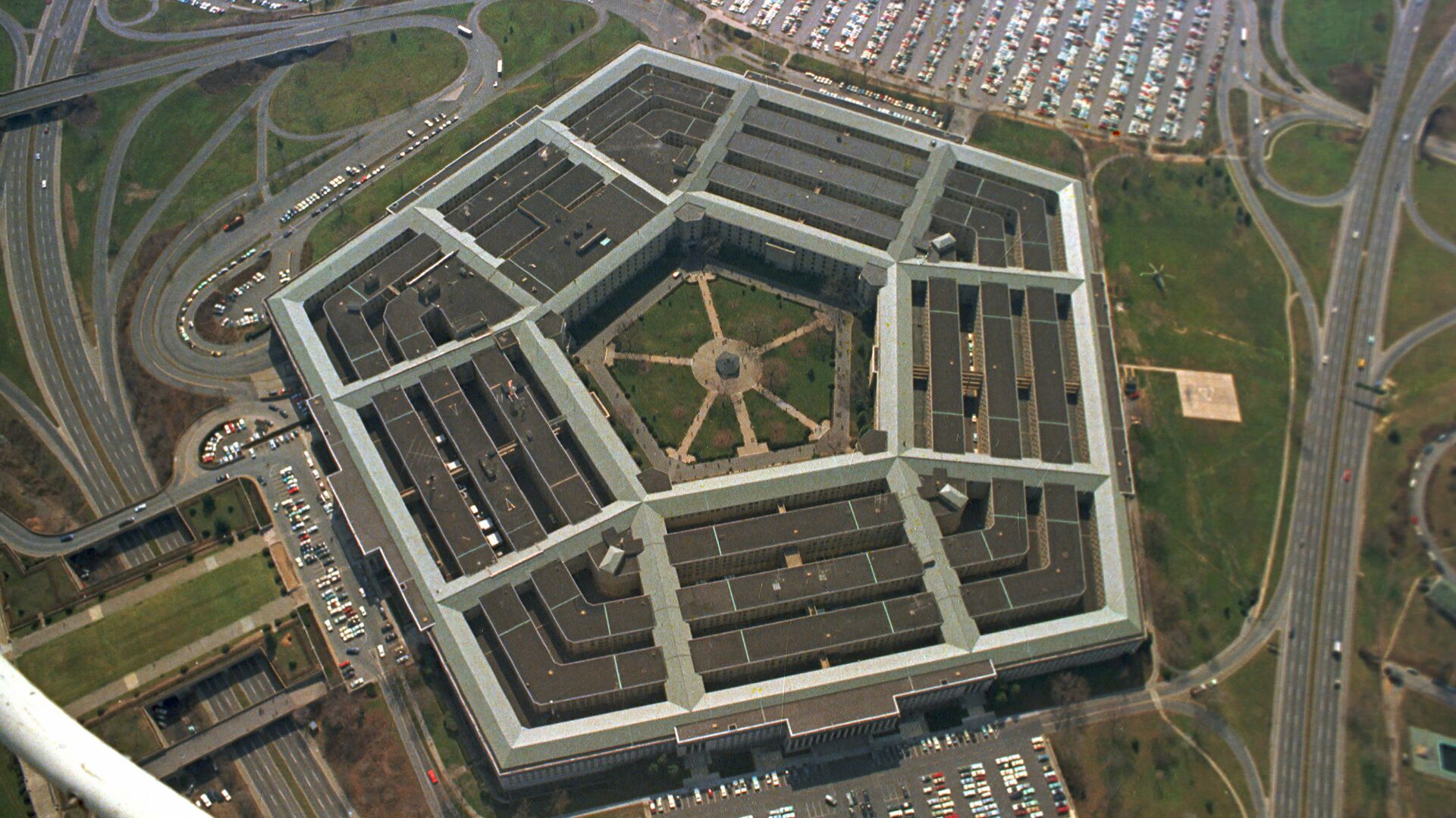https://sputnikglobe.com/20220625/pentagon-awards-bae-12-billion-contract-to-modernize-us-nuclear-capable-missiles--1096659973.html
Pentagon Awards BAE $12 Billion Contract to Modernize US Nuclear-Capable Missiles
Pentagon Awards BAE $12 Billion Contract to Modernize US Nuclear-Capable Missiles
Sputnik International
Defense officials had earlier complained over the Biden administration's decision to scrap $813 billion in defense spending on nuclear capabilities from the... 25.06.2022, Sputnik International
2022-06-25T16:08+0000
2022-06-25T16:08+0000
2023-05-28T15:19+0000
us
intercontinental ballistic missile (icbm)
pentagon
united kingdom (uk)
https://cdn1.img.sputnikglobe.com/img/105840/23/1058402311_0:140:3090:1878_1920x0_80_0_0_f5022104733a7b6bdf8d3564add39036.jpg
The Pentagon has awarded an 18-year-long contract worth $12 billion to the UK-based defense company BAE Systems.The contract sees BAE "supporting and augmenting" Washington’s Intercontinental Ballistic Missile (ICBM) weapon systems, as well as provide "professional services" related to their operations. It expires in December 2040.The US Department of Defense did not elaborate further on the nature of the BAE Systems' work on the ICBMs, which are capable of delivering nuclear warheads. However, the Pentagon noted that most of the work will be carried out at the US Air Force Nuclear Weapon Center in Hill Air Force Base, Utah.This is one of the biggest contracts allocated by the Pentagon this year amid a slashed defense budget. While the Biden administration called for increasing investments in the Ground Based Strategic Deterrent, namely ICBMs, the overall nuclear weapons budget contracted by $813 billion for 2023.This move did not sit well with some defense officials, who complained about it during a recent congressional hearing. According to their testimonies, some US weapons might end up on the chopping block as a result, namely the 1.2 megaton B83-1 gravity bomb.The B83-1 gravity bomb was developed in 1983, and all of its components, including fissure material, require modernization or replacing due to current unreliability. It is also only deliverable by the ageing B-2 Spirit bomber, which is not fit to breach multi-layered enemy anti-air defenses.The Biden administration’s budget cuts, which may see one of the US’ most powerful bombs retired and replaced by the weaker 50 kilotons B61-12, reverse plans by the Trump government to modernize the deterrent.
https://sputnikglobe.com/20220528/uks-sub-based-nuclear-deterrent-under-threat-as-us-puts-squeeze-on-london-to-sell-defence-co-1095845839.html
united kingdom (uk)
Sputnik International
feedback@sputniknews.com
+74956456601
MIA „Rossiya Segodnya“
2022
Tim Korso
https://cdn1.img.sputnikglobe.com/img/07e6/03/0d/1093831826_0:0:216:216_100x100_80_0_0_e3f43a960af0c6c99f7eb8ccbf5f812c.jpg
Tim Korso
https://cdn1.img.sputnikglobe.com/img/07e6/03/0d/1093831826_0:0:216:216_100x100_80_0_0_e3f43a960af0c6c99f7eb8ccbf5f812c.jpg
News
en_EN
Sputnik International
feedback@sputniknews.com
+74956456601
MIA „Rossiya Segodnya“
Sputnik International
feedback@sputniknews.com
+74956456601
MIA „Rossiya Segodnya“
Tim Korso
https://cdn1.img.sputnikglobe.com/img/07e6/03/0d/1093831826_0:0:216:216_100x100_80_0_0_e3f43a960af0c6c99f7eb8ccbf5f812c.jpg
us, intercontinental ballistic missile (icbm), pentagon, united kingdom (uk)
us, intercontinental ballistic missile (icbm), pentagon, united kingdom (uk)
Pentagon Awards BAE $12 Billion Contract to Modernize US Nuclear-Capable Missiles
16:08 GMT 25.06.2022 (Updated: 15:19 GMT 28.05.2023) Defense officials had earlier complained over the Biden administration's decision to scrap $813 billion in defense spending on nuclear capabilities from the 2023 budget. The slashing might force the Pentagon to do away with one of its most powerful nuclear bombs – the ageing megaton-class B83-1 gravity bomb.
The Pentagon has awarded an 18-year-long contract worth $12 billion to the UK-based defense company BAE Systems.
The contract sees BAE "supporting and augmenting" Washington’s Intercontinental Ballistic Missile (ICBM) weapon systems, as well as provide "professional services" related to their operations. It expires in December 2040.
The US Department of Defense did not elaborate further on the nature of the BAE Systems' work on the ICBMs, which are capable of
delivering nuclear warheads. However, the Pentagon noted that most of the work will be carried out at the US Air Force Nuclear Weapon Center in Hill Air Force Base, Utah.
This is one of the biggest contracts allocated by the Pentagon this year amid a slashed defense budget. While the Biden administration called for increasing investments in the Ground Based Strategic Deterrent, namely ICBMs, the overall nuclear weapons budget contracted by $813 billion for 2023.
This move did not sit well with some defense officials, who complained about it during a recent congressional hearing. According to their testimonies, some US weapons might end up on the chopping block as a result, namely the 1.2 megaton B83-1 gravity bomb.
The B83-1 gravity bomb was developed in 1983, and all of its components, including fissure material, require modernization or replacing due to current unreliability. It is also only deliverable by the ageing B-2 Spirit bomber, which is not fit to breach multi-layered enemy anti-air defenses.
The Biden administration’s budget cuts, which may see one of the US’ most powerful bombs retired and replaced by the weaker 50 kilotons B61-12, reverse plans by the Trump government to modernize the deterrent.



